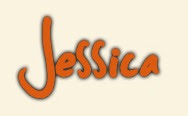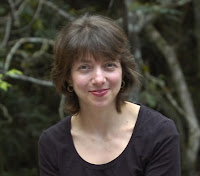Every Wednesday of every week is The Artist Unleashed. If you'd like to write a guest post to help promote your blog, website, service, or books, or anything else you want to draw attention to, please contact me via jessica.carmen.bell@gmail.com to book yourself in.
I have slots available from Wednesday, October 1, 2014.
All posts for this feature must be inspiring and/or motivating, and encourage discussion. I will not just post your book blurb, cover, and purchase links. One, because you are more likely to attract attention to your work if you have something interesting to say. And two, because I would like my blog to offer useful and interesting information for my readers, not blatant advertisements.
I will tweet and Facebook your posts several times during the week to get it as much exposure as possible. Highest views on a single post = 1000+. If you want to reach that 1000 views mark it means you need to provide interesting content and make an effort in sharing the post on various platforms as much as I do. This is a collaborative effort.
When you send me your post, please include:
It is your responsibility to send me your post on time. If I do not receive it two days before you are scheduled to post (i.e. Monday) at the latest, I will arrange for someone else to take your place, and your post will then be pushed back to the first available date. I will send you one reminder the weekend before, but that is it.
Also, please only book yourself in if you are serious about sending in a post. I realize that things can happen to cause delays, and I'm very understanding when life interferes with your good intentions, but the amount of people who cancel (multiple times, sometimes) at the last minute is rather astonishing, and I'm left to scramble for replacements. Please do your best to avoid this. A bit of respect is all I ask.
To view all past Artist Unleashed posts, CLICK HERE.
The earlier you secure a date the better. Whenever I publish announcements the slots disappear like hot cakes.
Please contact me via jessica.carmen.bell@gmail.com to book.
Have a great week!
I have slots available from Wednesday, October 1, 2014.
All posts for this feature must be inspiring and/or motivating, and encourage discussion. I will not just post your book blurb, cover, and purchase links. One, because you are more likely to attract attention to your work if you have something interesting to say. And two, because I would like my blog to offer useful and interesting information for my readers, not blatant advertisements.
I will tweet and Facebook your posts several times during the week to get it as much exposure as possible. Highest views on a single post = 1000+. If you want to reach that 1000 views mark it means you need to provide interesting content and make an effort in sharing the post on various platforms as much as I do. This is a collaborative effort.
When you send me your post, please include:
- A title (you'd be surprised how many people forget!)
- A call to action at the end (A question related to your post to ask readers, which will make it easier for them to leave a comment.)
- A head shot (JPEG please, do NOT embed it into your Word Doc, I need it as a separate attachment)
- A 3rd person bio 50-100 words including all your web links
- Word count: 500-1000 words
It is your responsibility to send me your post on time. If I do not receive it two days before you are scheduled to post (i.e. Monday) at the latest, I will arrange for someone else to take your place, and your post will then be pushed back to the first available date. I will send you one reminder the weekend before, but that is it.
Also, please only book yourself in if you are serious about sending in a post. I realize that things can happen to cause delays, and I'm very understanding when life interferes with your good intentions, but the amount of people who cancel (multiple times, sometimes) at the last minute is rather astonishing, and I'm left to scramble for replacements. Please do your best to avoid this. A bit of respect is all I ask.
To view all past Artist Unleashed posts, CLICK HERE.
The earlier you secure a date the better. Whenever I publish announcements the slots disappear like hot cakes.
Please contact me via jessica.carmen.bell@gmail.com to book.
Have a great week!
________Announcements________
____________
Sign up to my newsletter and receive Book #1 of the Writing in a Nutshell Series, Show & Tell in a Nutshell, or Muted: A Short Story in Verse, for FREE.


















